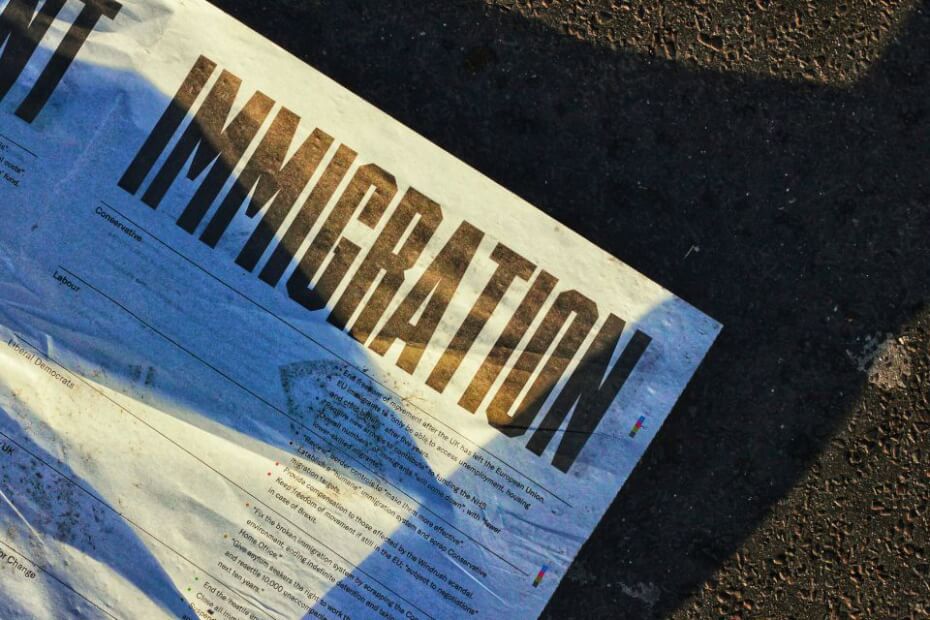
The United Kingdom (UK) High Court has ruled against the Home Office for failing to provide 3C leave to those applying for visa extensions, according to The Guardian.
A 3C leave means that if someone applies to extend their stay in the UK before their visa expires, their right to stay is automatically extended until a decision is made.
This helps prevent gaps in a person’s immigration status while their application is being processed.
Mr. Justice Cavanagh, who presided over the case, declared the Home Office’s decision not to provide thousands of migrants with a 3C leave as “irrational and unreasonable.”
He pointed out that not having proof of status led to “real hardship” for many people, affecting their daily lives and well-being.
Documentary proof of a 3C leave demonstrates that they are legally in the UK.
Without documentation, many of the migrants faced serious problems. They couldn’t prove their right to work, rent a home, or access healthcare.
This uncertainty extended to their children, who also suffered due to their parents’ undocumented status.
This lack of proof caused difficulties, trapping many in the so-called “hostile environment” created by UK immigration policies.
The High Court’s ruling
The legal challenge was led by the Refugee and Migrant Forum of Essex and London (RAMFEL) and a former client.
They argued that the Home Office’s failure left many wrongly classified as undocumented, subjecting them to harsh immigration controls.
Justice Cavanagh emphasized three main reasons for the ruling:
Hardship for Migrants
Many people on 3C leave faced grave issues because they couldn’t show proof of their legal status. This affected their ability to work, find housing, and access essential services.
Legislative Purpose
Immigration laws, including section 3C, protect the rights of those legally present in the UK. Without documentation, these people couldn’t prove their rights, contradicting the law’s intent.
No Justifiable Reason
The Home Office provided no valid reasons for not issuing a 3C leave proof of status. Justice Cavanagh highlighted that there were no counterarguments to justify this failure, making the decision unreasonable.
The judge urged the Home Secretary to take a “straightforward step” to avoid hardship for hundreds of people.
Janet Farrell, a lawyer from Bhatt Murphy Solicitors who represented the claimants, described the judgment as a “significant victory.”
She explained that it would help many people who have been struggling without proof of their legal status.
“This judgment ensures that those on 3C leave can now prove their status and access the rights they are entitled to,” Farrell said.
Having no proof of 3C leave and the Windrush scandal

Nick Beales, head of campaigning at RAMFEL, compared this situation to the Windrush scandal.
He stated, “Time and again, the government’s hostile environment traps and targets people with every right to be in the UK.
“They assured us they had learned from the Windrush scandal, but these words were clearly hollow.”
The Windrush Scandal, exposed in 2017, affected Caribbean immigrants who came to the UK between 1948 and 1973.
As British subjects, they were wrongly treated as illegal immigrants despite having the right to live and work in the UK indefinitely.
These ‘Windrush’ generation members faced unjust detention, deportation, and denial of legal rights.
This case sparked widespread controversy and called for justice as the government wrongfully treated these long-term residents.
The “hostile environment” policy
The “hostile environment” policy aims to make staying in the UK difficult for those without the right to be there.
However, this approach often affects those who are legally present but lack documentation to prove it.
This policy includes measures that make it hard to work, rent property, or access healthcare without proof of immigration status.
The High Court’s ruling highlights the negative impact of this policy on people with 3C leave.
This highlights the importance of the UK government to help all migrants obtain the proper immigration status documentation.
Beales of RAMFEL urged the next government to end the hostile environment policy altogether.
Transitioning to eVisas

When the High Court ruling was released in June, a Home Office spokesperson said they are “carefully considering the judgment.”
Currently, the Home Office is transitioning all forms of physical immigration status documents to digital visas by 2025.
This means that migrants will no longer receive physical proof of their right to stay in the UK but will have their status recorded online.
All Biometric Resident Permits (BRPs), passport wet ink stamps, and vignette stickers will be replaced by an online digital record or an eVisa.
Those with physical proof of immigration status must create a UK Visas and Immigration (UKVI) account.
The UKVI account will demonstrate immigration status to employers, landlords, and banks. It will be linked to passports to avoid travel disruptions and inconveniences.
This transition to a “digital by default” immigration system aims to modernize the process and reduce fraud.
However, critics fear the rushed timeline could lead to a repeat of the Windrush scandal.
Without physical proof, migrants may struggle to prove their status, leading to similar issues.

